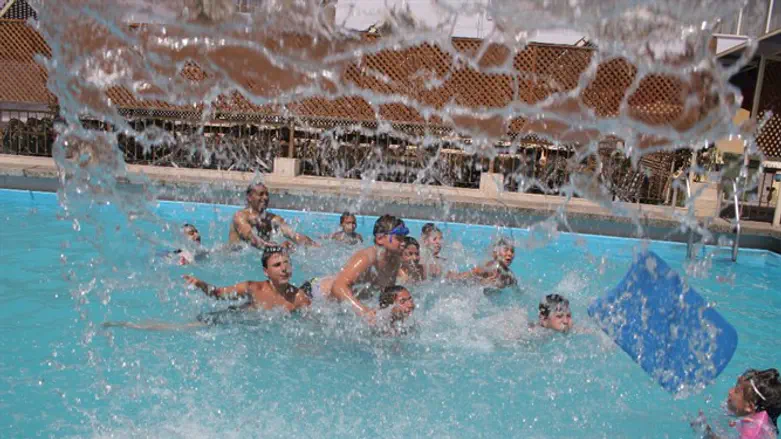
Dr. Shirley Friedman, a pediatrician in Ichilov Hospital's pediatric intensive care unit (PICU), responded to the recent wave of drownings.
Over the past few weeks, several children have drowned or nearly drowned both in swimming pools and at the beach. Since the beginning of the year, a total of 29 children have drowned.
"This is Dr. Shirley Friedman, a senior doctor in the pediatric intensive care unit for the past ten years," she said. "This is the blackest summer I can remember. Almost every day, we at the hospital have to deal with children who drowned or nearly drowned in a pool or in water. A little baby, just five months old, and I even had to declare her death."
"Dear parents, listen to me. I'm the one who has to unplug the machines and hold your hand at the worst moment of your life.
"Watch your children with ten eyes - one second of not paying attention, and your lives will change forever. And believe me, these parents will remain scarred and and with feelings of guilt that will never heal. I'm the one who's with them at these moments, and there are no words that can comfort them."
Dr. Friedman then gave a list of precautions to prevent drowning:
- Only go to official beaches, which have lifesaving services, and listen to the guidelines.
- If there is a red flag, and certainly if there is a black flag - don't go in the water.
- A child who does not know how to swim well should not enter the water by himself. You can drown in water of any depth.
- Floating devices are not protection against drowning - a child can be swept away and drown even with floating devices.
- When you take your child to water activities, leave your phone in your bag. Even if there won't be any pictures from this outing, the phone causes distractions. Better to have one picture less and a living child.
- Don't drink coffee on the grass and watch from 'afar,' be within arm's reach of the child.
- If you go to a cottage, only go to one with a pool that is fenced in and closed, so that he can't reach it alone.
- Don't leave standing water, even if it's only two centimeters deep. Not in a bucket, bathtub, or plastic pool. Nothing.
Dr. Friedman emphasized, "You should know: Children do not show signs of distress before they drown in the ocean, because they don't have the energy to fight, so they just sink."
"Irreversible brain damage starts after just 4-6 minutes of oxygen deprivation. There are a lot of children who remain severely disabled because of this.
"Parents, we're only at the beginning of August. We still have another month of vacation ahead of us. Enjoy the summer, celebrate with your children, even in the water. But only when you're together with them and holding their hand the entire time.
"I don't want to see you here with us anymore."